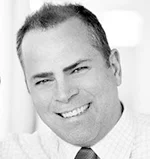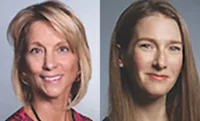The court battle between the cellphone industry and Berkeley, Calif., which wants notices posted at the point of sale, exposes flaws in the U.S. legal system.
The battle was covered in an extensive article in Newsweek Nov. 3 by Ronnie Cohen.
 CTIA, formerly the Cellular Telephone Industries Assn., which had revenues of $161 million in 2014 and net assets of $134M, is arguing that Berkeley has no right to order stores to post signs saying:
CTIA, formerly the Cellular Telephone Industries Assn., which had revenues of $161 million in 2014 and net assets of $134M, is arguing that Berkeley has no right to order stores to post signs saying:
“If you carry or use your phone in a pants or shirt pocket or tucked into a bra when the phone is ON and connected to a wireless network, you may exceed the federal guidelines for exposure to RF radiation.” Customers are told to read the safety regulations in the cellphone manuals.
Lawrence Lessig, attorney for Berkeley, says it is a matter of "free speech" and companies are discouraging governments from imposing regulations by filing First Amendment lawsuits that are prohibitively expensive to defend.
Berkeley says it is the only town in the U.S. attempting to order stores to post notices about the cellphones either at the point of sale or handed to each buyer.
Proponents of the notices say that the husband of Judge Michelle Friedland, one of three judges on the case, should not be involved because he is a senior design engineer with Tarana Wireless which partnered with Nokia. Tarana's largest investor is AT&T. Tarana designs equipment for the 5G (Fifth Generation) rollout being promoted by the FCC and industry.
Proponents also say that the U.S. Chamber of Commerce has fought cellphone retail store "right to know" laws across the country, filing amicus briefs in cities and states. Governments can post cellphone precautions on their website without getting sued, the proponents say.
Schools, Libraries Lack Cellphone Notices
|
|
Radiation health advocates note that no library in the U.S. carries such notices, apparently because they fear legal action by CTIA and its allies. There are no such notices in any libraries, schools or government offices in the towns of Southampton, Hampton Bays, Quogue or Westhampton, which are visited often by this writer.
CTIA, whose slogan is "Everything Wireless.," says that the notices mislead customers by saying that if cellphones are not used in a certain way, “they won’t be safe.” Berkeley argues back that the notices are “free speech” and only repeat what is already in cellphone instructions buried in small type near the end.
The cellphone industry spent $166 billion on cell towers and networks from 2009-14. There are 594,304 cell towers in the U.S., many of them in residential districts, according to thekillzones.com, which says they are a major health hazard. CTIA says there are 242,130 towers while StatisticBrain says there are 215,000.
CTIA CEO Steve Largent was paid $2,731,355 in 2014, latest financial report available on GuideStar. He retired in December 2014. Second highest pay went to Chris Guttman-McCabe, XVP, $1,548,037. Meredith Baker, president/CEO as of June 2014, was paid $883,676.
Becky Relic, SVP/PA and communications, left the association in October.
CTIA is represented by Theodore Olson, former solicitor general who argued the case that helped to put George W. Bush in the White House, says Cohen.
Wikipedia says Al Gore would have won the 2000 election instead of George W. Bush “if the Supreme Court had not stopped the recount.”
Lessig, Harvard law professor who specializes in “cyberlaw,” is working pro bono for Berkeley. He was formerly director of the Edmond J. Safra Center for Ethics at Harvard and was a candidate for the Democratic nomination for president in 2016, withdrawing before the primaries. He favors reduced legal restrictions on copyright, trademark and the radio frequency spectrum, particularly in technology applications. He founded in 2001 Creative Commons, a non-profit that allows legal copying of articles.
Berkeley Battle a “Travesty”
Ellen Marks, director of the California Brain Tumor Assn., which found in a survey that Berkeley residents “overwhelmingly want this information at the point of sale,” said CTIA is showing that the cellphone industry “has no concern for the health or rights of all Americans. No one is saying do not use a cellphone. The fact that this industry is working so hard to hide this from the public only confirms the science that cellphones, as currently used, cause cancer and other ill health effects.”
The U.S. Chamber of Commerce, which in 2014 published Unprincipled Prosecution, The Abuse of Power and Profiteering in the New Litigation Swarm, says the U.S. has “the world’s most costly legal system as a share of its economy.”
Legal critic Les Sachs says the 2.2 million U.S. prisoners is the “largest prison gulag in the world,” the proportion of prisoners to population being 30 times higher than it is in China even though “China is regularly denounced by the U.S. government.”
|
|
Particular victims are minorities, he says, with one in 20 African-American adult males being behind bars. The U.S. is also one of 60 of 200 countries still practicing executions with 35 states having such laws on the books. Legal battles on the sentences last an average of 14 years and cost California $307 million per execution. There are 1.22 million U.S. lawyers or 391 per 100,000 population vs. 23 per 100K in Japan and 26 per 100K in Canada.
“American lawyers are directly under the thumb of the judges and the government, and must submit to the culture of bribery and the perversion of justice, or else face terrifying revenge,” says Sachs. “Lawyers, just like yourself, can be quickly stripped of their rights to practice law, and personally and financially destroyed, if they dare criticize legal corruption.”
Lack of Trials Noted
The Sachs essay is of particular interest to Berkeley residents who wonder why the issue is not being put to a trial. “Jury trials are actually very rare in America, unlike what you see in the movies,” says Sachs. “Most cases are settled through some deal or extortion or intimidation.”
Lawyers work closely with judges and engage in “an endlessly devious manipulation of words and phrases to get the desired result,” he says. “Lawyers have to make the judge happy first."
Reporters, according to Sachs, “are little timid people who are afraid of getting fired and who almost never write a story on government corruption unless some other part of the government is officially investigating or prosecuting.”
All of the above sites decry the almost complete disappearance of jury trials. Scranton, Pa., lawyer Marion Munley says justice in the U.S. has deteriorated into a “series of back-room deals.” There are “pre-trials and pre-trials and pre-trials for the pre-trials, benefiting lawyers only,” says the Anti-Lawyer Party.
“Trial by Jury, a Hallowed American Right, Is Vanishing,” said the headline on a first page story in the Aug. 8, 2016 New York Times. “Justice is being served behind closed doors,” says the article. “The entire system loses an edge,” said Judge John Gleeson while Judge Jed Rakoff said, “A trial is the place where the system really gets tested.”




 Lo Isidro, senior director at Real Chemistry with more than a decade of strategic communications and PA experience, has joined Narrative Strategies.
Lo Isidro, senior director at Real Chemistry with more than a decade of strategic communications and PA experience, has joined Narrative Strategies. Nelson Fernandez, former North American chair of APCO Worldwide and managing director of Burson-Marsteller, has joined Volunteers in Medicine Berkshires as director of communications and PA.
Nelson Fernandez, former North American chair of APCO Worldwide and managing director of Burson-Marsteller, has joined Volunteers in Medicine Berkshires as director of communications and PA. Lilit Bargar, who was most recently an EVP in the healthcare practice at Weber Shandwick, comes on board at GCI Health as EVP, corporate practice lead.
Lilit Bargar, who was most recently an EVP in the healthcare practice at Weber Shandwick, comes on board at GCI Health as EVP, corporate practice lead.
 Five ways that successful thought leaders are made.
Five ways that successful thought leaders are made.


 Have a comment? Send it to
Have a comment? Send it to 
No comments have been submitted for this story yet.